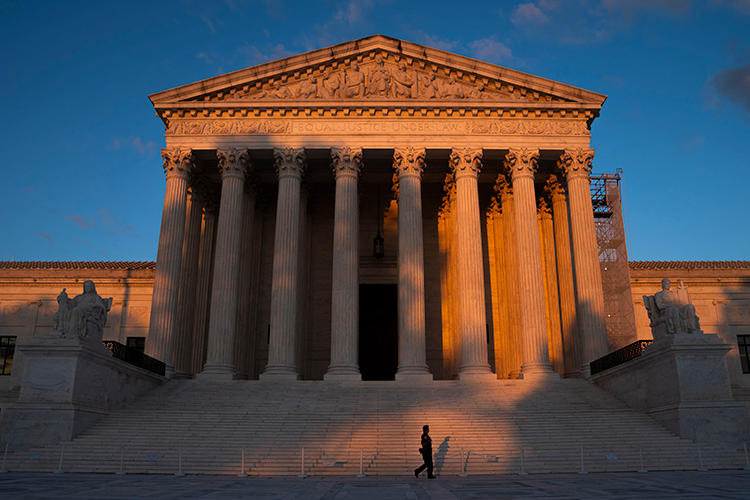U.S. Supreme Court
Supreme Court Clarifies False Statements Law: Merely Misleading Statements Are Not Criminal
March 24, 2025, 3:41 pm CDT
A recent ruling by the U.S. Supreme Court clarified the boundaries of federal laws against false statements, particularly in relation to the Federal Deposit Insurance Corporation (FDIC). (Photo by Allison Robbert/The Washington Post)
In a significant ruling on March 21, 2025, the U.S. Supreme Court determined that a federal law prohibiting knowingly false statements intended to influence the FDIC does not categorize statements that are merely misleading as criminal. This decision arose from the case involving Patrick Daley Thompson, a lawyer and former Chicago alderman.
The unanimous opinion, authored by Chief Justice John Roberts, underscores a trend where the Court has recently curtailed expansive interpretations of federal criminal statutes. According to SCOTUSblog, this decision fits within a series of rulings that challenge broader prosecutorial claims under federal law.
Case Background
Thompson had been involved in securing three loans from Washington Federal Bank for Savings over a period of three years, amassing a total of $219,000. His initial loan of $110,000 was allocated toward an equity payment for his law firm, with further loans of $20,000 and $89,000 following. After the failure of the bank in 2017, the FDIC assumed responsibility for the collection of these loans.
In his communications with the FDIC’s loan servicer and contractors, Thompson stated he had only borrowed the first $110,000. He argued that while his statement may have been misleading, it was not factually false, as it referred specifically to that initial loan. Eventually, Thompson settled the outstanding amount of $219,000.
Court Proceedings
In February 2022, Thompson faced a conviction, which was upheld by the 7th U.S. Circuit Court of Appeals. However, the recent Supreme Court ruling vacated this affirmation, emphasizing that the law explicitly mentions “false” rather than “misleading” statements. Chief Justice Roberts remarked, “Given that some misleading statements are also true, it is significant that the statute uses only the word ‘false.’”
The Supreme Court refrained from addressing whether Thompson’s statements were indeed false, indicating that this issue would need to be revisited on remand. As reported, Thompson has already completed a four-month prison sentence related to this conviction. He also faced separate charges for filing false tax returns, though these were not part of the current appeal.
Conclusion
This ruling might have broader implications for how federal false statement laws are interpreted moving forward, potentially safeguarding individuals from prosecution based solely on misleading assertions that do not meet the threshold of being categorically false.
The case is formally recorded as Thompson v. United States.

